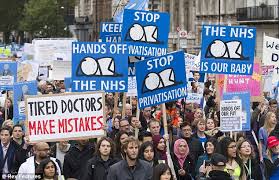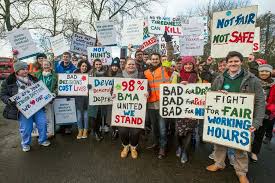

There have been many calls to establish blame for the high number of fatalities occurring in the Grenfell Tower fire.
If, as expected, it is established that the cause of many of the fatalities was the polyurethane foam insulation and polyethylene cored aluminium used in the cladding of the building, then it is the politicians and people of the UK as a whole who are to blame, and not any individual or group.
It is the irrational obsession with so called Global Warming and the clamour to reduce carbon dioxide emissions which has resulted in this tragedy. This allowed, indeed encouraged, the use of flammable materials with superior insulation properties for cladding such buildings instead of the more traditional and much safer non-flammable materials such as concrete panels and rockwool.
The same obsession has also resulted in thousands of deaths as a result of encouraging diesel engines with their lower carbon dioxide emissions, even though they emit poisonous nitrogen oxides and particulates which cause premature death for many unfortunate people exposed to their pollution. Incidentally, nitrogen oxides actually produce a greater greenhouse effect than carbon dioxide, but this is ignored.
There is no record of anyone having died directly as a result of global warming, yet many thousands have died as a result of the quasi-religious obsession in reducing carbon dioxide emissions. This obsession is in fact a good example of a meme. It is spread by global warming activists and so called climate scientists who make their living by promoting these ideas. Unfortunately, those without a proper scientific education are gullible enough to believe them, and it is this collective drive by so many people that is causing unnecessary deaths.
There was a time when the majority of people believed that the earth was flat. We may laugh at them now, but this is no different and is a lot more dangerous. Do you think that it is okay to rely on our emotions and irrational beliefs in order to create a unified community reinforced by memes, as many religions do, and that killing a few people as a result is an acceptable cost?
When Donald Trump withdrew from the Paris Agreement he was accused of putting the USA first. Isn’t it about time that the UK government puts Britain and the health and safety of its people first?
The focus in the media seems to have been on the flammability of the polyurethane. However, in certain circumstances aluminium is also highly flammable. One can see from the picture above that the aluminium component of the cladding appears to have caught fire and burnt away – so it is not just the insulation material which is the problem. It will be interesting to see whether this is taken into account in future regulations, or whether the power of industry lobbyists will prevent it.

